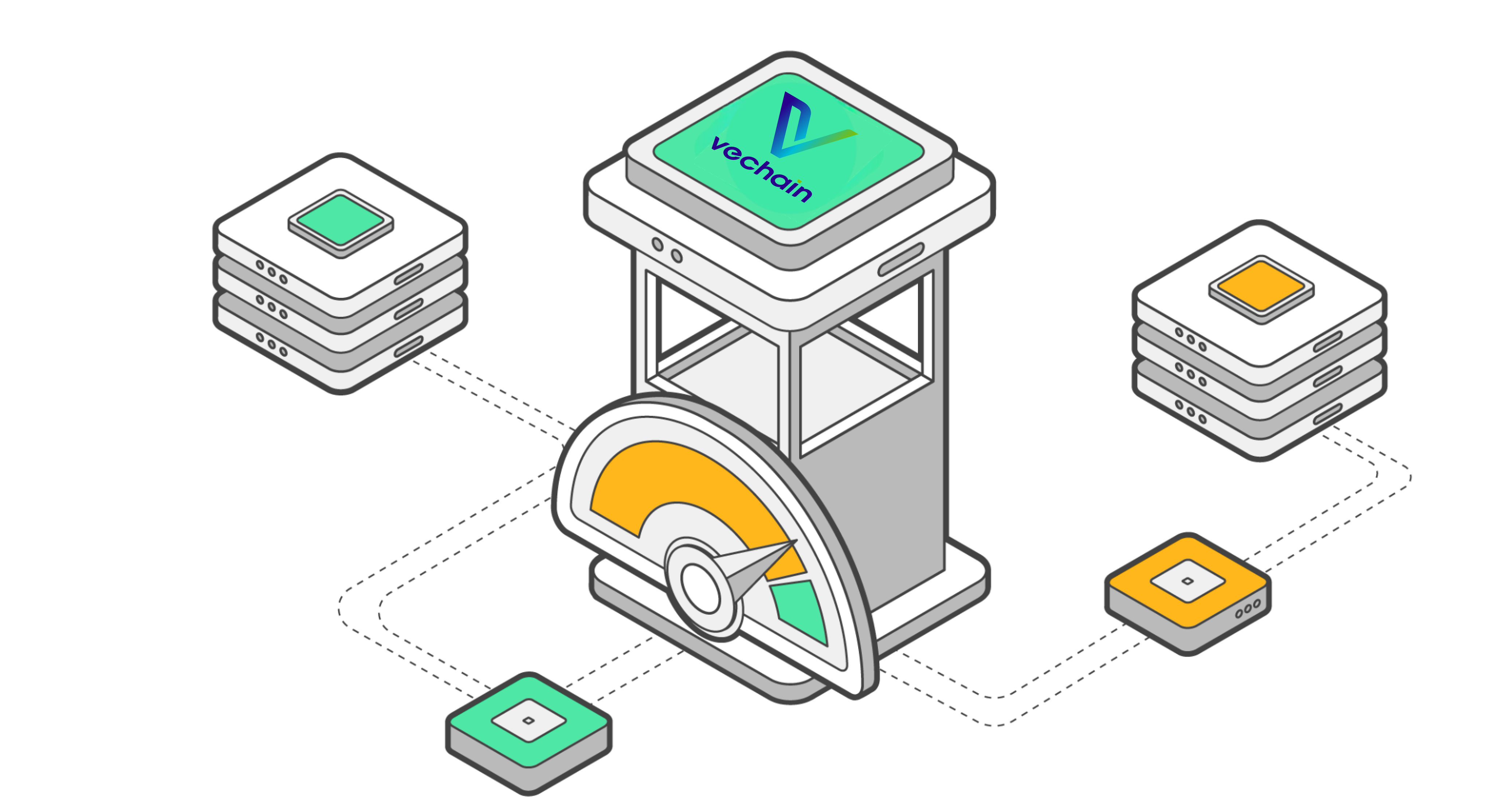
Crypto Taxes in the UK: The Complete Guide (2025)
Master UK Crypto Taxes in 2025: Rates, Rules, Allowances & Easy HMRC Filing Guide.

- AI summary
- Do You Pay Tax on Crypto in the UK?
- Crypto Capital Gains Tax in the UK
- Income Tax on Crypto in the UK
- How to Calculate Crypto Taxes in the UK
- How to Report Crypto Taxes to HMRC
- Deadlines for UK Crypto Taxes (2025)
- Best Tools to Track and File Crypto Taxes in the UK
- Common Mistakes When Paying Crypto Taxes in the UK
- Future of Crypto Taxation in the UK
- FAQ – Crypto Taxes in the UK
- Final Thoughts
AI summary
Cryptocurrency taxation in the UK is governed by HMRC, which treats crypto as property, meaning most disposals—such as selling, trading, or spending—trigger Capital Gains Tax, while income from mining, staking, or salaries is subject to Income Tax. Accurate record-keeping, correct calculation using share pooling, and timely reporting are essential to comply with regulations, avoid penalties, and optimize financial planning. As crypto adoption increases, UK tax rules continue to evolve, making it important for investors to stay informed and use appropriate tools for tax management.
Cryptocurrency in the UK has moved from a niche asset to a mainstream investment, with millions now holding Bitcoin, Ethereum, and altcoins. HM Revenue & Customs (HMRC) treats crypto as property, not currency, meaning that every disposal — whether selling, swapping, or spending can trigger a taxable event. Understanding cryptocurrency taxation in the UK is vital for investors, traders, and casual holders alike, as compliance prevents penalties and allows better financial planning. See our Crypto in the UK guide for a broader look at regulations, adoption, and trading. This guide breaks down what is taxed, current allowances, applicable rates, and the practical steps to calculate and report crypto taxes to HMRC.
Do You Pay Tax on Crypto in the UK?
Yes, you do. You are subject to tax if you profit from cryptocurrency in the UK. HMRC clearly states that crypto assets are taxable under existing rules. The type of tax depends on how you earn or dispose of your crypto.
Taxable events include:
- Selling cryptocurrency for GBP or another fiat currency
- Swapping one cryptocurrency for another (for example, ETH for BTC)
- Using crypto to pay for goods or services
- Receiving crypto through mining, staking, airdrops, or as a salary
Non-taxable events include:
- Buying cryptocurrency with fiat and simply holding it
- Transferring crypto between your own wallets
- Gifting crypto to a spouse or civil partner (though gifts to others may trigger Capital Gains Tax)
If you're new to the market, start with our guide on how to buy Bitcoin in the UK before diving into taxation. In short, if you ask, "Do you pay tax on crypto in the UK?" the answer is yes — unless your activity falls into one of the non-taxable categories.
Crypto Capital Gains Tax in the UK
Most crypto investors fall under Capital Gains Tax (CGT). When you dispose of a crypto asset, HMRC calculates whether you made a gain or a loss compared to the original purchase price.
Tax-Free Allowance
For the 2024/25 tax year, the UK's annual Capital Gains Tax allowance is £3,000. If your total net gains from all assets, including crypto, fall below this amount, you owe no CGT. However, you must still keep accurate records.
Capital Gains Tax Rates
Your tax rate depends on your income tax band:
- Basic rate taxpayers: 10% on crypto gains
- Higher and additional rate taxpayers: 20% on crypto gains
These rates apply after you deduct your allowance and account for any losses.
Examples
Example 1:
You buy Bitcoin worth £5,000 in 2023. In 2025, you sell it for £15,000. Your gain is £10,000. After subtracting the £3,000 allowance, £7,000 remains taxable. If you are a higher-rate taxpayer, you pay 20% of £7,000 = £1,400.
Example 2:
You buy Solana for £2,500 and sell it for £5,000 in the same tax year. The gain is £2,500. Because it falls below the £3,000 allowance, you owe no CGT.
These examples show why understanding thresholds and rates is vital when managing cryptocurrency taxation in the UK.
Income Tax on Crypto in the UK
Not all crypto earnings fall under CGT. HMRC treats crypto as taxable earnings if you receive it as part of your income. The rule applies to:
- Mining: Rewards from verifying transactions count as income.
- Staking: Coins earned through proof-of-stake protocols are taxable income.
- Airdrops: Free tokens may be income if received as part of a service or promotion.
- Salary in crypto: HMRC taxes any employment or freelance income paid in crypto at standard income tax rates.
The UK income tax bands in 2025 are:
- 20% (basic rate)
- 40% (higher rate)
- 45% (additional rate)
Later, when you dispose of these income-earned assets, you may also pay CGT on any additional gains. That scenario creates a two-layer tax situation: income tax, then capital gains tax when you sell the assets.
How to Calculate Crypto Taxes in the UK
Accurate calculation is the backbone of crypto tax compliance. HMRC requires investors to use the share pooling method for cost basis calculations. The rule prevents "cherry-picking" specific trades to reduce tax.
Steps to calculate crypto tax in the UK:
- Identify each disposal event and record the date, the crypto disposed of, and the GBP value.
- Work out the cost basis. Use share pooling to average the acquisition cost of identical assets.
- Subtract cost basis from disposal proceeds. The result is your gain or loss.
- Apply the annual allowance. Deduct £3,000 for 2025.
- Offset losses. Declare losses to reduce taxable gains.
- Apply the correct tax rate. Use 10% or 20% for CGT, or your income tax band for earnings.
Example:
You buy 1 ETH for £1,000 and another for £2,000. Your share pool cost basis is £1,500 per ETH. You sell 1 ETH later for £3,000. Your gain is £1,500. After applying allowance and rates, you determine your tax liability.
If you're a frequent trader, it's worth comparing platforms that simplify record-keeping. Our guide to the best crypto exchanges in the UK highlights reliable options. This method ensures fair calculation and aligns with HMRC's crypto tax filing requirements.
How to Report Crypto Taxes to HMRC
Once you calculate your tax, you must report it through the UK Self Assessment process.
- The required form is SA100 (primary tax return) with a Capital Gains summary (SA108).
- Method: File online via the Government Gateway or submit paper forms.
- Information needed: Transaction details, GBP values, cost basis, gains/losses, and any income from crypto.
You must report both gains and losses. Even if you fall below the allowance, HMRC encourages accurate declarations. Filing ensures you can carry forward losses to offset future gains.
Deadlines for UK Crypto Taxes (2025)
The UK tax year runs from 6 April 2024 to 5 April 2025.
- Filing deadline: 31 January 2026 (for online returns)
- Payment deadline: Same as filing — 31 January 2026
- Penalties: Late filing triggers a £100 fine immediately, with daily penalties and interest if delays continue.
Meeting deadlines is critical to avoid unnecessary costs. Always prepare documents early, especially if you trade frequently.
Best Tools to Track and File Crypto Taxes in the UK
Calculating crypto taxes manually can be overwhelming, particularly with multiple exchanges and wallets. Several software solutions automate this process and integrate with HMRC rules.
Popular crypto tax software in the UK:
- Koinly: Widely used for UK-specific HMRC reports
- CoinTracker: Syncs with exchanges for real-time tracking
- Accointing: User-friendly platform for portfolio and tax reporting
- Recap: UK-based tool with strong HMRC compliance focus
- TaxBit: Ideal for advanced users with complex portfolios
For added accuracy, ensure your portfolio is secure and easy to track. Using Tangem's cold wallet protects your assets and simplifies transaction records for tax purposes.
Common Mistakes When Paying Crypto Taxes in the UK
Even experienced investors often slip up when dealing with HMRC crypto compliance, but avoiding these errors ensures smoother filing and prevents penalties. Some mistakes to avoid include:
- Ignoring crypto-to-crypto trades: Swapping coins counts as a taxable event.
- Failing to track cost basis correctly: Without accurate records, you risk overpaying.
- Overlooking small trades: Even small disposals count toward your total gains.
- Not declaring income rewards: Airdrops and staking often go unreported but remain taxable.
Future of Crypto Taxation in the UK
The landscape of cryptocurrency taxation in the UK continues to evolve. HMRC and the Financial Conduct Authority (FCA) are tightening oversight, especially as crypto adoption grows. Potential areas of change include:
- EU MiCA alignment: Post-Brexit, the UK may adopt similar frameworks to improve investor protection.
- Central Bank Digital Currency (CBDC): The proposed Digital Pound could influence how transactions are tracked and taxed.
- Greater transparency: Expect stricter reporting obligations as regulators push for global tax cooperation.
Investors should stay updated on HMRC crypto regulation to prepare for new requirements.
FAQ – Crypto Taxes in the UK
Do you pay tax on crypto in the UK?
Yes. Profits from selling, trading, or using crypto are taxable. Earnings from mining, staking, and airdrops are also subject to income tax.
What is the crypto tax rate in the UK?
Capital Gains Tax is 10% for basic rate taxpayers and 20% for higher/additional rate taxpayers. Income tax rates are 20%, 40%, and 45% depending on your band.
How do I calculate crypto taxes in the UK?
Use the share pooling method to determine cost basis, subtract from disposal value, apply allowance, and then apply the correct tax rate.
How do I report crypto to HMRC?
Through Self Assessment using SA100 and SA108 forms. Online submission via Government Gateway is the most common method.
What happens if you don't declare crypto in the UK?
You risk penalties, interest on unpaid tax, and possible investigation by HMRC. Non-compliance can result in severe consequences.
Final Thoughts
Understanding crypto taxes in the UK is essential for anyone buying, trading, or earning digital assets. Since HMRC treats crypto as property, most disposals trigger Capital Gains Tax, while mining, staking, or payment income incurs Income Tax. As cryptocurrency adoption grows, regulations will continue to evolve. Staying updated on HMRC rules, filing before deadlines, and learning from common mistakes helps protect your profits and prevent penalties.
For those investing abroad, check our international tax guides on the USA, France, Brazil, Spain, Thailand, India, and Germany to compare global frameworks. With the proper knowledge and preparation, you can manage your crypto taxes confidently and plan your investments more effectively.










